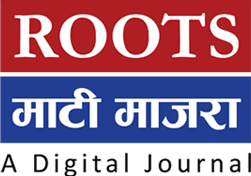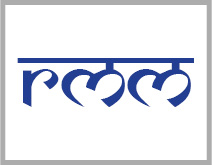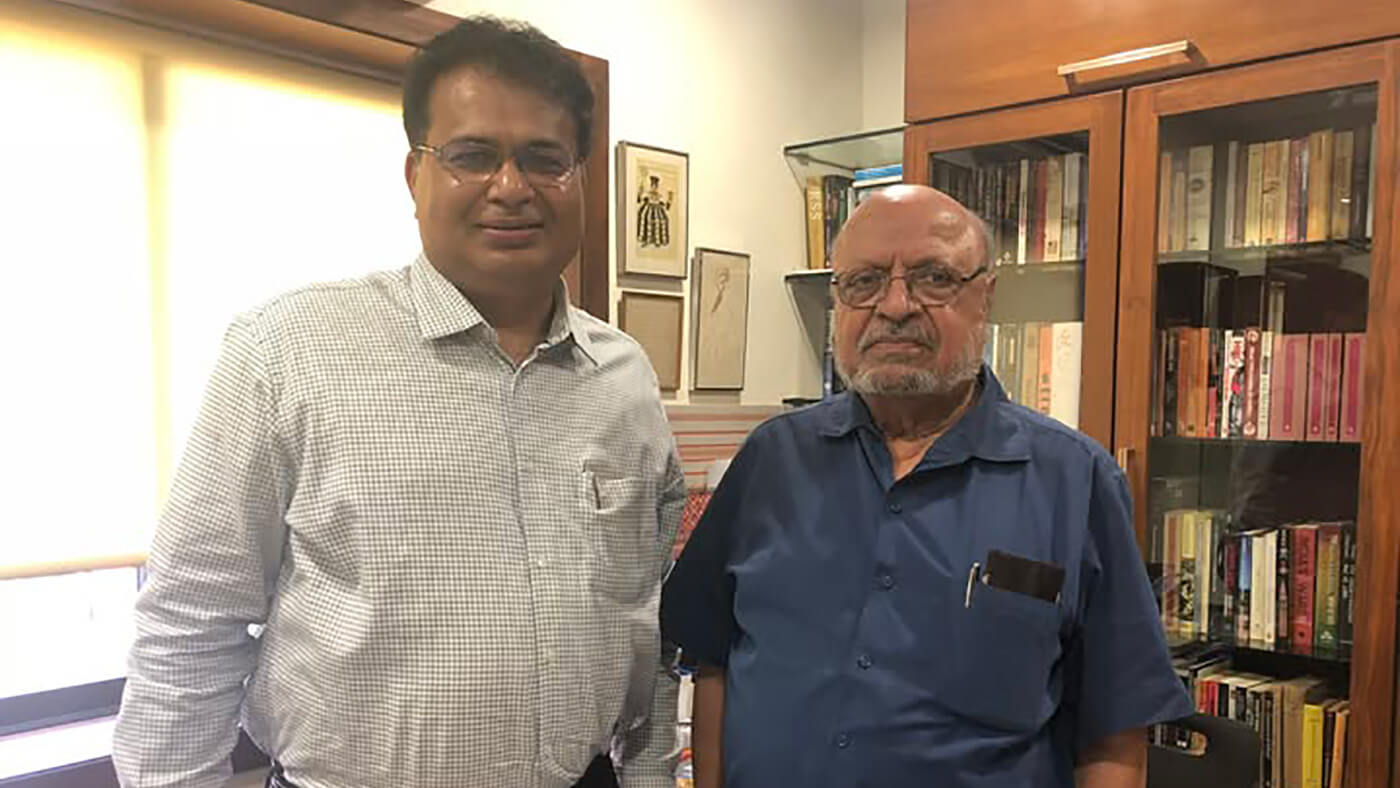In his foreword to the book, on collected essays of Satyajit Ray, Shyam Benegal described how he got hooked on to the magic of films, through the screening of Pather Panchali in a regular theatre at Kolkata when it was released. On a visit to the city, he heard about this novel being made into films and went to see it and was enamoured by it so much that when he saw it he stayed back at the theatre to see the evening and late evening shows of the film. The passion for meaningful films, ignited by Ray’s “ Pather Panchali “ remained with him all his life as a filmmaker from Ankur in 1973 to Mujib-The making of a new nation” in 2023.
Very few knew that as a young student at Hyderabad Osmania University he kept his passion going through a film club called “ The Cultural Group”.” : This was sometime in 195-56. Having heard of Pather Panchali, I wrote to Satyajit Ray to ask him if we could get his film to screen at our film society.He graciously sent me an introductory letter to his producers, who in turn sent us a print quite unhesitatingly for a screening. It was with this film that the Cultural Group was inaugurated at a cinema in Secunderabad on a Sunday morning,”Mr Benegal wrote in the message to my book on the history of Indian Film Society movement. The filmmaker continued his passion for Ray as filmmaker when he made a two part documentary, where he himself interviewed Ray about his films and filmmaking. After Ray’s demise as a lifelong President of Federation of Film Societies of India (FFSI), Shyam Benegal served as President of the Federation for 6 years ( 2004-2010).
Personally as a cinephile, I had a love -hate relationship with as a filmmaker. Hated him as I argued with him,( as I had problems with his clinical style of filmmaking even as a student) in my FTII interview and lost out on admission. Loved him, as he always stood for better and meaningful films till his end on Monday, 23 rd December. I rate him as just above the mid cinema, not along with the art house picture just as a Mani Kaul or Adoor. I met him for the last time 10 years back in his office in Mumbai, to talk to him about a possible bio-pic on George Fernandes. He was ready if we arrange the funds, which the Mumbai trade unions of George did not part with, for reasons best known to them. I always considered him a clinical filmmaker, as he could take any subject to make a film, whether he has an in-depth knowledge, feel for it or not. He was essentially an advertisement filmmaker (he started off in that genre) and with a good brief, a good subject of the times and with a good script, he could make it into a film. Best example being Manthan , a film about Amul co-operative, which is all about the historic farmers’ movement which Dr Verghese Kurian converted into a mega corporation. The film stands on its own not because of the filmmaker, but the uniqueness of the movement. Same is his first two films, Anukr and Nishant, which was about the feudal eco-system of the Indian villages. The subject incidentally was the toast of the Indian new wave films, which he became part of and remained as the only consistent filmmaker in Hindi making such films his entire 55 year old career.
I thought I was biased about him, but when I heard the same opinion from Prof. Fatima Meer , who wrote the basic script of ” Making of Mahatma” which Bengal directed, I was convinced I was right.( The late S African activist , an expert on Gandhiji’s S African period, through her book –The Apprenticeship of a Mahatma- was upset about the clinical approach of the film). According to Prof. Meer, the filmmaker took out the feelings of the life of young Gandhi and made it a text book film. But as a filmmaker Benegal always stood for a good script and knew how to execute it as great film. His films are there for anyone to see and feel it. From Ankur in 1973 to Bio-pic on Mujib Rehman ( Bangabandu of Bangladesh) in 2003 his oeuvre work, mostly in Hindi, will stand testimony to a lifelong commitment to good films. I rate his series on Bharat Ek Khoj based on late Prime Minister Jawaharlal’s path breaking book, “ Discovery of India “, as his best work though.
Shyam Benegal though not considered as the vanguard of new wave of Indian cinema like Mrinal Sen, Mani Kaul or Adoor Gopalakrishnan, carved out a niche for himself over the years with his consistent filmmaking without any commercial ingredients, handling sort of conventional narrative but insightful and refreshing subjects. From Ankur to his Muslim life trilogy to Mujib, the making of a nation, the bio-pic for the Bangladesh government, he kept the vision of a Nehruvian India in films. His TV series Bharat Ek Khoj and Samvidhan amply reveals his affinity with the wider world of the first Prime Minister of India.
Describing the film policy initiatives such as establishment of Film Finance Corporation for financing of feature films, the creation of a film school to train filmmakers in all disciplines, a children films society to encourage the making of films for children and replacing British Censor code of films with and Indian film certification policy, Mr. Benegal said in an interview that “ All film policy of Independent India began about that time so you can certainly imply that it was a Nehruvian policy initiative.” Admitting that the relevance of the new wave of Indian cinema was always marginal, he went on to add that it was not just the official policies but the interest of Prime Minister Indira Gandhi and the then FFC Chairman which led to a series of films by new wave filmmakers challenging the mainstream commercial films. “Official policy had little to do with any of this until BK Karanjia took over the Film Finance Corporation and Mrs. Indira Gandhi took an active interest in wanting to see more artistic Cinema being made in India. B K Karanjia’s intervention helped in supporting the graduates of the FTII graduates to make their first films in the early 70s. This is considered the beginning of the New Cinema movement in the country. The Film Society Movement kept pace with all these changes. Kerala was always at the forefront with the largest number of film societies in the country. Kerala also produced a very significant number of extraordinary films through the 70s and 80s”, the veteran filmmakers told this writer in an interview on new filmmakers and film society movement earlier.
Though his mother tongue is Kannadika and origins from Udupi, in Karnataka, Mr Benegal was a filmmaker who made films in Hindi and is considered as doyen of new wave films. Many of his films did not get a proper theatre film release, but they were celebrated in film festivals in India and across the globe and widely screened in film societies and Doordarshan. He can be credited with making actors like Shabana Azmi, Naseerudin Shah and Om Puri mainstream actors through the brilliant performance of in his films. His films were honoured in various categories in National film festivals over the years and he himself was celebrated with a Dada Saheb Phalke award. Benegal was in most governments film policy committees over the years and last of which was censorship. In his passing away India and its meaningful films lost a strong pillar and a spokesman as his words were final on many contentious issues in the film sector.
(V K Cherian is a Delhi based author of “Celluloid to Digital-India’s film society movement and Noon films and Magical Renaissance of Malayalam Cinema”.).




